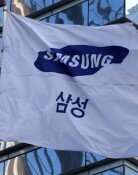The New Deal is Risky, KDI Blames the Government
The New Deal is Risky, KDI Blames the Government
Posted December. 14, 2004 22:04,
Korea Development Institute (KDI), a major government think tank, has made an unusual accusation of the governments major policies, including the comprehensive investment project, also known as the New Deal.
KDI pointed out that next years economic growth rate will stand at around four percent even if the government aggressively adopts stimulus packages, and that the New Deal runs a high risk of inefficiency as the policy will cause moral hazard.
KDI said in an economic outlook released on December 14 that the government should be careful not to launch an inefficient project even though expansive fiscal policies are needed, considering the current economic situation. The research institute went on to say that it would be desirable for the government to carry out planned and tested projects first before trying to develop a new project.
Regarding the comprehensive investment plan that the government is pushing forward to revitalize the economy, it also added that it would be better if the private sector shares the risk of the investment with the government in order to prevent the private sector from launching inefficient projects with moral hazard.
Such argument is quite different from the governments stance. The government is planning to develop new Social Overhead Capital (SOC) investments including facilities for senior citizens and medical and health services in an effort to revitalize the economy, and to guarantee profit on state bonds+α to attract more private investments.
KDI also expressed its concerns over the ever-increasing share of the public sector in the financial market. Cho Dong-chul, a research fellow of KDI, warned against the inefficiency stemming from a behemoth public sector, saying that it is undesirable that the public sector takes account of more than 300 trillion won, including foreign reserve (200 trillion won) and public pensions (130 trillion won) out of the total financial asset of almost 1,000 trillion won.
The think tank also commented on the Ministry of Finance and Economys plan to establish the Korea Investment Corporation (KIC) to utilize foreign reserve, with the strategy in which the public sector invests on behalf of the private sector and should be discussed.
KDI predicted that next years economic growth rate will stand at around four percent. The figure reflects the comprehensive investment project and also signifies that the growth rate could fall to the three percent range, depending on the situation.
It also anticipated that the growth rate of the fourth quarter of this year (October-December) would drop to 3.4 percent, reducing the annual growth rate of 4.7 percent.
LG Economic Research Institute also revised downward next years growth rate prospect from 4.1 percent of September to 3.8 percent on the same day. The institute warned that the growth rate could further decrease to the low three percent or two percent range.
Jong sik Kong Ji-Wan Cha kong@donga.com cha@donga.com







